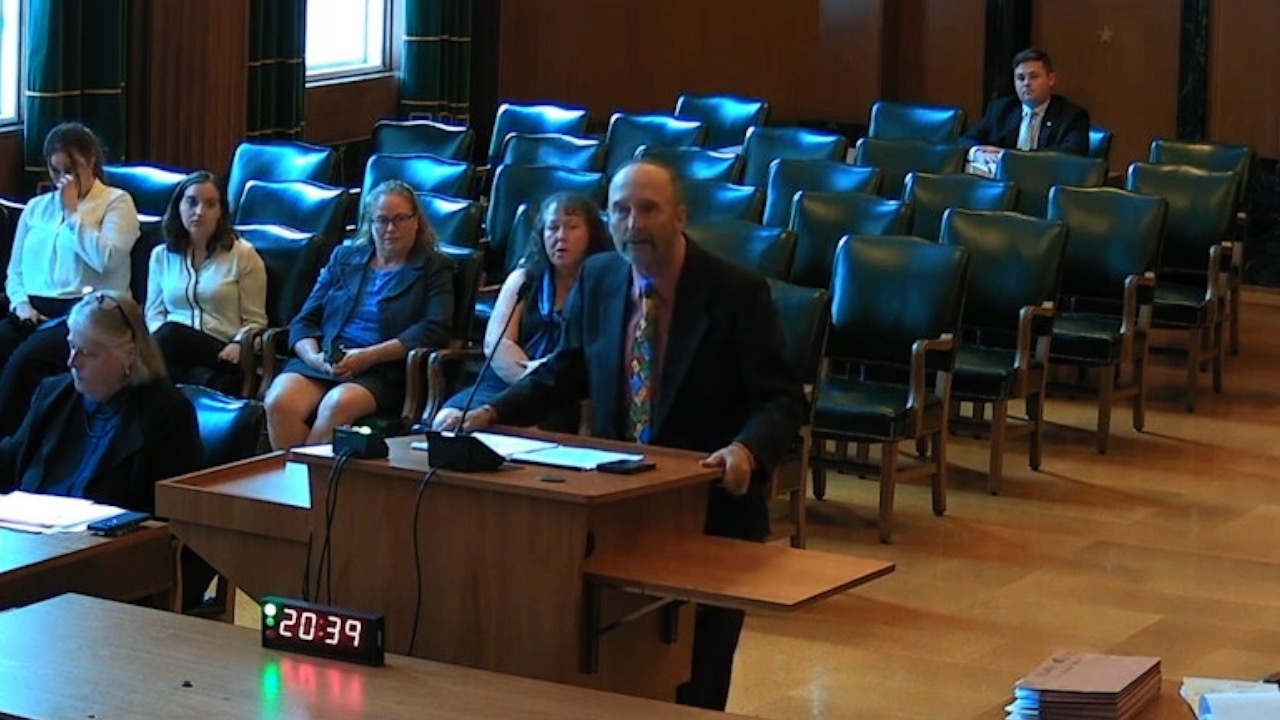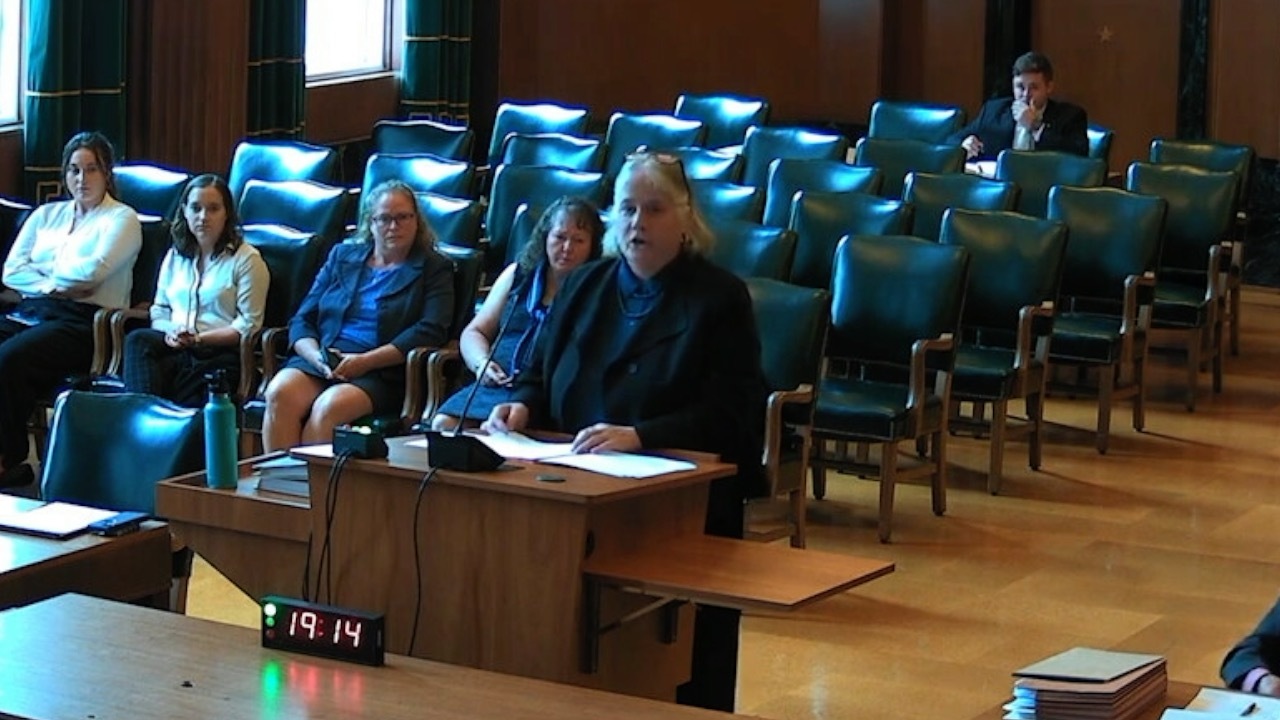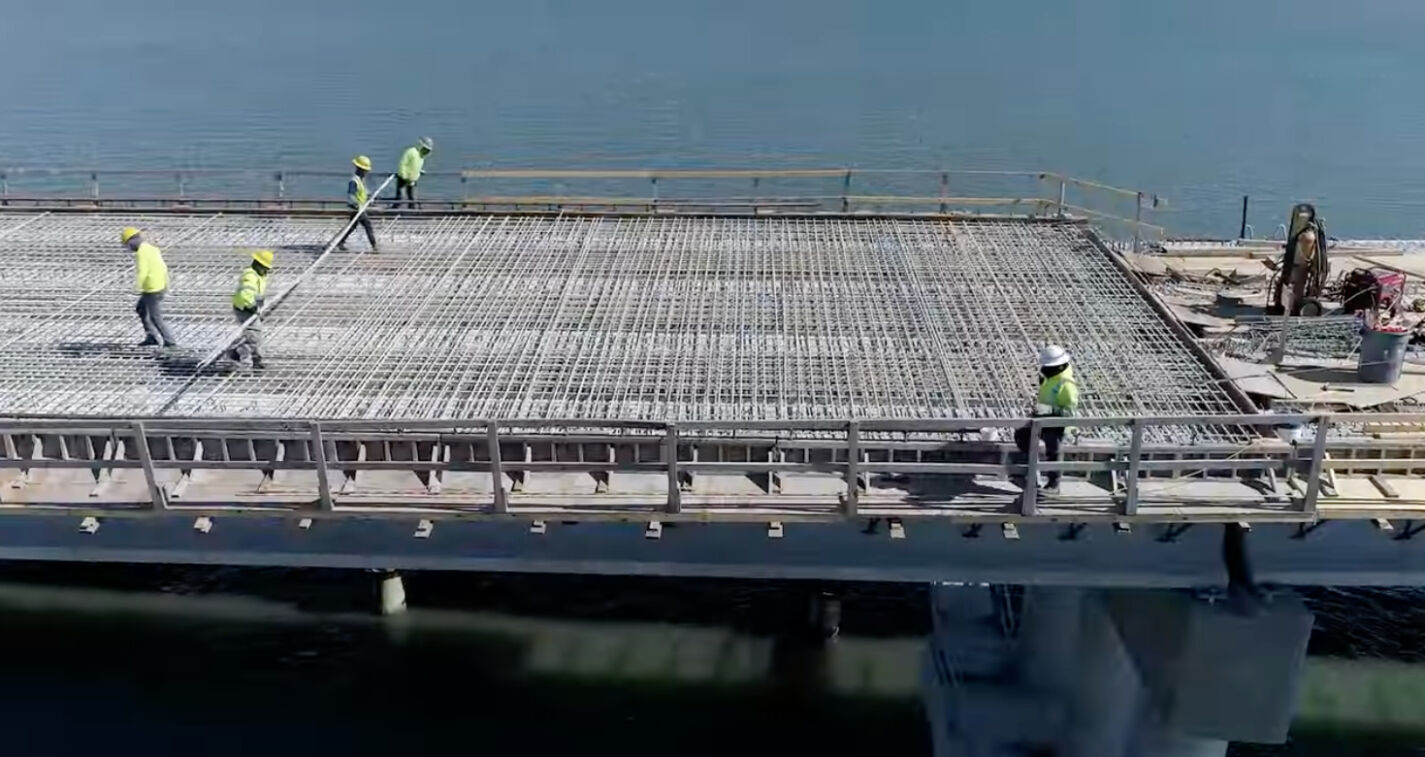- The state Supreme Court is addressing a dispute over lawyers' fees in a legal fight over the new Harkers Island Bridge project.
- A Superior Court judge awarded nearly $90,000 in fees to plaintiffs who won the right to pursue their concerns before an administrative law judge.
- The state Court of Appeals split, 2-1, over the trial judge's authority to award the legal fees.
- Critics eventually settled their dispute with the state Department of Transportation. The $68 million bridge project is scheduled to be finished in fall 2025.
As the state Department of Transportation pushes ahead with its $68 million Harkers Island Bridge replacement project, the state Supreme Court focused Wednesday on a battle over roughly $90,000.
That’s the amount of lawyers’ fees a Superior Court awarded plaintiffs in 2020 during their bid to block the bridge project from moving forward. The state Department of Transportation later reached a settlement with the plaintiffs.
The state’s highest court will determine whether a Carteret County judge had the authority to award $89,444.36 to bridge opponents during a dispute with the state Coastal Resources Commission.
By law, the commission must screen any third-party requests to block permits for projects like the new Harkers Island Bridge. Nearby landowners sought the commission’s permission to challenge the Division of Coastal Management’s 2019 permit for the new bridge. Had the commission granted the request, the property owners would have presented their case to a state administrative law judge.
The Coastal Resources Commission rejected the landowners’ request, writing that bridge opponents had failed to demonstrate that their request was “not frivolous.” A Superior Court judge disagreed. Later, that judge ruled that the commission should pay the plaintiffs’ legal fees. A state Court of Appeals panel split, 2-1, on the judge’s authority to grant the request for fees.
Attorney Clark Wright of New Bern tied the fight for lawyers’ fees to a larger concern about the commission’s gatekeeping role.
“That’s the problem,” Wright said during oral arguments in Raleigh. “The administrative state had gotten so huge and has left the average person who either owns land or seeks to do development in a simple way facing a myriad of regulations and requirements and long processes and so on and so forth. All our clients ever asked for was the opportunity to be heard before an impartial decisionmaker, i.e., an administrative law judge.”

Special Deputy General Mary Lucasse of the NC Department of Justice represented the Coastal Resources Commission. She defended that group’s decision to label the plaintiff’s claims frivolous.
“Basically, what happened is that the petitioner did not connect the dots in their one-page summary document,” Lucasse said. “That was their burden.”

Neither attorney faced many questions.
Justice Trey Allen asked both lawyers whether the commission’s petition denial amounted to “pressing a claim.” He cited a state law that requires a finding of an agency “pressing a claim” when considering the award of attorney’s fees.
Justice Anita Earls asked Wright to respond to the commission’s argument that plaintiffs could not challenge the bridge permit based on the argument that the new bridge would fail to have the least possible impact on neighboring property.
Justice Richard Dietz did not take part in Wednesday’s oral arguments. Prior to joining the state Supreme Court this year, Dietz wrote the March 2022 Appeals Court majority decision upholding the trial court’s authority to award lawyers’ fees.
“The Commission exercised its gatekeeper authority and denied Petitioners the right to challenge the underlying regulatory action in an administrative proceeding on the ground that Petitioners’ challenge was frivolous,” Dietz wrote. “Petitioners then sought judicial review
in the courts, and the trial court rejected the Commission’s determination and ordered that Petitioners could pursue their administrative challenge to the permit.”
“Under the merits test, Petitioners were the prevailing parties in that judicial review proceeding because they succeeded in the relief they sought when they petitioned for judicial review,” he added.
Dietz and Judge Jefferson Griffin did not endorse the fee award. Instead they voted to send the case back to a trial judge. The trial court would have to determine whether the commission’s actions in the case lacked “substantial justification.” Then the judge could revisit the issue of awarding fees.
Dissenting Appeals Court Judge John Tyson argued that the plaintiffs’ “motion for attorney’s fees must be dismissed.” He noted that the plaintiffs eventually settled their dispute over the permit through mediation with the state Department of Transportation.
“The superior court, as a reviewing appellate court, remanded jurisdiction for Petitioners to file a petition for a contested case” under the state’s Administrative Procedure Act, Tyson wrote. “That court’s jurisdiction ended, and no authority remained for it to consider Petitioners’ pre-emptory motion for attorney’s fees. Neither Petitioners’ petition for judicial review, nor the settlement agreement with DOT, nor the dismissal of the contested case … preserved Petitioners’ right to seek attorney’s fees.”
There is no deadline for the state Supreme Court to issue a decision in Batson v. Coastal Resources Commission.

DOT expects to complete the Harkers Island Bridge replacement in fall 2025. The Carteret County bridge will “become the first fully reinforced glass and carbon fiber bridge in the state,” according to a July 11 article at ConstructionEquipnentGuide.com. “NCDOT expects the new design will better withstand the highly corrosive marine environment of the Carolina coast and extend the longevity of the bridge by decades.”
The original wooden Harkers Island bridge, built in 1941, was replaced in 1969 using concrete with steel reinforcement.